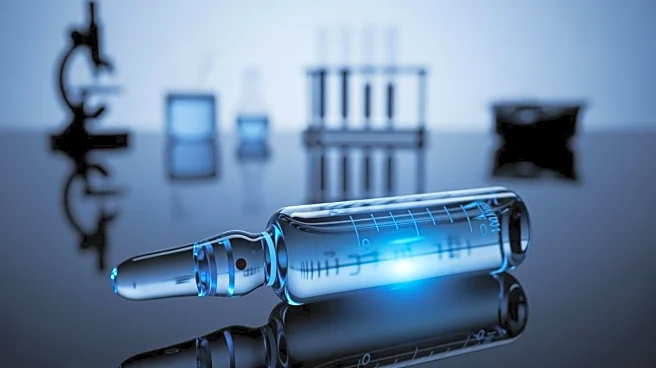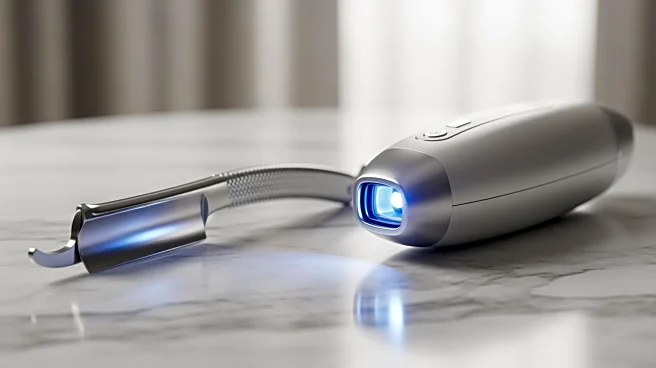What's Happening?
OCEAN Dx has announced the successful completion of a clinical evaluation study for its rapid diagnostic test for sepsis, conducted at Bordeaux University Hospital. The study involved 107 patients and demonstrated results consistent with the gold standard
for sepsis detection. The test features a detection spectrum covering over 1,000 bacterial species and provides results within a 5-hour turnaround time. It achieved 100% detection sensitivity and negative predictive value compared to the reference blood culture test. The test also showed strong concordance in bacterial identification with mass spectrometry, achieving 95% accuracy at the phylogenetic family level and 85% at the species level. The test detected nearly three times more bloodstream infections than conventional blood cultures, offering a significant improvement in sepsis care.
Why It's Important?
The rapid diagnostic test developed by OCEAN Dx represents a major advancement in sepsis care, potentially revolutionizing how this life-threatening condition is diagnosed and managed. Sepsis is a leading cause of mortality in hospitals, and timely diagnosis is crucial for effective treatment. The ability to detect infections quickly and accurately can significantly improve patient outcomes, reduce hospital stays, and lower healthcare costs. Additionally, the test's ability to identify fastidious bacteria and its resilience to antimicrobial inhibition can enhance antibiotic management and help prevent antibiotic resistance. This innovation aligns with global efforts to improve sepsis care and reduce the burden of infectious diseases, offering a promising tool for healthcare providers worldwide.
What's Next?
OCEAN Dx is completing the industrialization of its sepsis test and plans to conduct clinical trials in 2026, targeting CE marking. The company aims to launch its rapid sepsis diagnostic test in Europe by 2029. These steps will involve further validation and regulatory approval processes, as well as strategic partnerships to facilitate market entry and distribution. The successful commercialization of this test could lead to widespread adoption in hospitals and healthcare facilities, improving sepsis management and patient care globally.


















